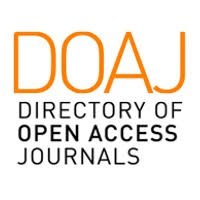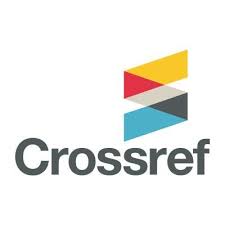Islamic Religious Education Methods for Inclusive Classes at Madrasah Aliyah Muhammadiyah 1 Ponorogo
DOI:
https://doi.org/10.24269/muaddib.v14i2.10346Abstract
This study examines the methods of Islamic Religious Education (PAI) implemented in inclusive classes at Muhammadiyah 1 Ponorogo High School. This topic is significant as inclusive education demands teaching strategies that accommodate the diverse abilities of students, including those with special needs, ensuring equitable access to religious education. The aim of this research is to analyze suitable PAI teaching methods for inclusive classes and assess their effectiveness in improving students’ understanding of religious material. This study employs a qualitative approach with a case study design. Data collection techniques include observation, in-depth interviews with teachers and students, and document analysis related to the implementation of PAI in inclusive classes. A participatory approach is also utilized to explore the experiences and challenges faced by teachers in teaching inclusive classes. The findings reveal that individual needs-based teaching methods, such as differentiated instruction, curriculum adaptation, and the use of interactive learning media, greatly assist students with special needs in comprehending PAI material. Teachers play a critical role in creating an inclusive and supportive learning environment. These methods have been proven to enhance student participation in the learning process and facilitate a deeper understanding of religious teachings. The implications of these findings emphasize the importance of developing teachers’ capacities to manage inclusive classes, particularly in PAI subjects. This research also contributes to improving inclusive education practices in Indonesia by providing recommendations for madrasahs and other educational institutions to pay greater attention to the needs of inclusive students in religious education processes.
References
Ahmad, I. F., Putro, N. H. P. S., Thontowi, Z. S., & ... (2020). Trends in the implementation of higher-order thinking skills in Islamic religious education in madrasahs and schools: A systematic literature review. Jurnal Pendidikan Islam, 9(2), https://ejournal.uin-suka.ac.id/tarbiyah/JPI/article/view/3656
Ahmad, MY, & Tambak, S (2017). Hubungan metode tanya jawab dengan minat belajar peserta didik pada mata pelajaran Pendidikan Agama Islam. Jurnal Pendidikan Agama IslamAlThariqah,journal.uir.ac.id,https://journal.uir.ac.id/index.php/althariqah/article/view/650
Agus, A., Juliadharma, M., & ... (2023). Application of the CIPP model in evaluation of the inclusive education curriculum in Madrasah Aliyah. Jurnal Pendidikan Islam, https://e-journal.uac.ac.id/index.php/nidhomulhaq/article/view/2705
Julianti, T, Ananda, AD, & Baharudin, A (2022). Pendidikan multikultular di indonesia: urgensi sebagai resolusi konflik. Ta'lim: Jurnal Studi , e-jurnal.unisda.ac.id, https://e-jurnal.unisda.ac.id/index.php/talim/article/view/2779
Chabbott, C. (2013). Constructing education for development: International organization and education for all. Education for Development.
Hatmanto, E. D., & Purwanti, E. (2020). Strategies in teaching and engaging the millennial generation. International Journal of Language Education and Applied Linguistics, http://journal.ump.edu.my/ijleal/article/view/3945
Hendrastomo, G. (2012). Homogenisasi pendidikan: Potret eksklusivitas pendidikan modern, 7-8.
Katni, K., Rois, A. K., Chairani, F. A. C., & Arifin, S. (2024). Assistance For Students to Improving Islamic Religious And Economic Education In Islamic Boarding Schools in Indonesia. International Journal Of Community Service, 4(4), 406-410.
Mahmudah, N., Kurnianto, R., Syam, A. R., & Arifin, S. (2023). Internalisasi Karakter Islami Berbasis Projek Penguatan Profil Pelajar Pancasila. TA'LIMUNA: Jurnal Pendidikan Islam, 12(2), 140-155.
Manab, A. (2016). Menggagas penelitian pendidikan. Tulungagung: CV. WADE GROUP.
Masturin, M. (2022). Development of Islamic religious education materials based on religious moderation in forming student character. Munaddhomah: Jurnal Manajemen Pendidikan Islam, http://pasca.jurnalikhac.ac.id/index.php/munaddhomah/article/view/310
Nasution, MK (2017). Penggunaan metode pembelajaran dalam peningkatan hasil belajar siswa. STUDIA DIDAKTIKA: Jurnal Ilmiah Bidang , jurnal.uinbanten.ac.id, https://jurnal.uinbanten.ac.id/index.php/studiadidaktika/article/download/515/443
Ning, Y., Zhou, Y., Wijaya, T. T., & Chen, J. (2022). Teacher education interventions on teacher TPACK: A meta-analysis study. Sustainability, 14(18), https://www.mdpi.com/2071-1050/14/18/11791
Nurfadillah, S (2023). Pendidikan Inklusi: Penanganan Anak Berkebutuhan Khusus Di SekolahDasar.,books.google.com,https://books.google.com/books?hl=en&lr=&id=B0rCEAAAQBAJ&oi=fnd&pg=PP1&dq=nurfadillah+pendidikan+inklusi+pedoman+bagi+penyelenggaraan+pendidikan+anak+berkebutuhan+khusus&ots=vU4ZIHB4B0&sig=mQua_vQzb1yZhQnt7o10CpO3Y6g
Nurjan, S. (2015). Psikologi belajar (W. Setiawan, Ed.). Ponorogo: CV. WADE GROUP.
Peraturan Menteri Pendidikan Nasional No. 70 Tahun 2009. (2009).
Peraturan Menteri Sosial Republik Indonesia No. 8 Tahun 2012. (2012).
Rose, D. H., & Meyer, A. (2021). Universal design for learning: Theory and practice. CAST Publishing.
Salichah, S. M. (2021). Meningkatkan minat serta hasil belajar PAI dan BP melalui metode diskusi kelompok. Nuansa Akademik: Jurnal Pembangunan Masyarakat, 6(2), 103-114. https://jurnal.ucy.ac.id/index.php/nuansaakademik/article/view/798
Santoso, B., Triono, M., Shiddiq, M. A. A., & Arifin, S. (2024). The Readiness of Islamic Religious Education Teachers to Enter The Era of Industrial Society 5.0. Tafkir: Interdisciplinary Journal of Islamic Education, 5(4), Article 4. https://doi.org/10.31538/tijie.v5i4.1183
Savira, A., Fatmawati, R., Rozin, M., & Eko, M. S. (2018). Peningkatan minat belajar siswa dengan menggunakan metode ceramah interaktif. Journal Focus Action of Research Mathematic (Factor M), 1(1), 43-56. https://doi.org/10.30762/factor_m.v1i1.963
Supriyanto, S., Amrin, A., & Rifa'i, A. A. (2022). Islamic education paradigm on religious understanding in Indonesia: A case study at Islamic Boarding School of Al-Muayyad Surakarta.JurnalPemikiranIslam,https://ejournal.metrouniv.ac.id/akademika/article/view/4562
Syahidah, N. L. (2020). Metode demonstrasi pada pembelajaran PAI: Studi kasus materi penyembelihan hewan dan pengurusan jenazah. Edudeena: Journal of Islamic Religious Education, 4(1), 49-58. https://doi.org/10.30762/ed.v4i1.2105
Syarnubi, S., Mansir, F., Purnomo, M. E., Harto, K., & ... (2021). Implementing character education in madrasah. Jurnal Pendidikan Islam, https://www.academia.edu/download/112316890/6259.pdf
Syar'i, A., Hamdanah, H., & Akrim, A. (2020). The development of Madrasa education in Indonesia. Revista Argentina de Ciencias Sociales, http://digilib.iain-palangkaraya.ac.id/2569
Tabroni, I., Rahmi, N. F., & Sari, N. (2022). Management of the Madrasah Aliyah curriculum of religious sciences program at MAN 1 Purwakarta. Jurnal Multidisiplin Formosa, 1(1), 175. https://journal.formosapublisher.org/index.php/mudima/article/view/175
Tambak, S. (2015). Metode drill dalam pembelajaran pendidikan agama Islam. Al-Hikmah: Jurnal Agama dan Ilmu Pengetahuan, 12(1), 1-20. https://doi.org/10.25299/jaip.2015.vol12(1).1444
Tomlinson, C. A. (2019). The differentiated classroom: Responding to the needs of all learners. ASCD.
Yasin, A. F., Chakim, A., Susilawati, S., & ... (2023). Development of Islamic religious education learning in forming moderate Muslims. Tarbiyah Journal of Islamic Education, https://www.pasca.jurnalikhac.ac.id/index.php/tijie/article/view/227
Downloads
Published
Issue
Section
License
Copyright (c) 2024 Muaddib : Studi Kependidikan dan Keislaman

This work is licensed under a Creative Commons Attribution-ShareAlike 4.0 International License.

MUADDIB:Studi Kependidikan dan Keislaman is licensed under a Creative Commons Attribution-ShareAlike 4.0 International License.













